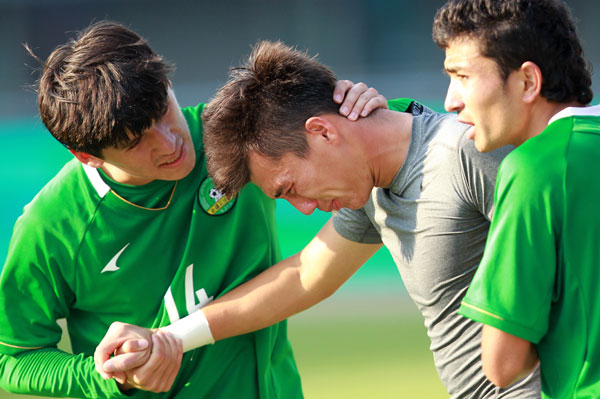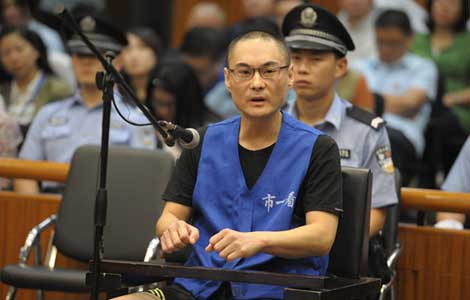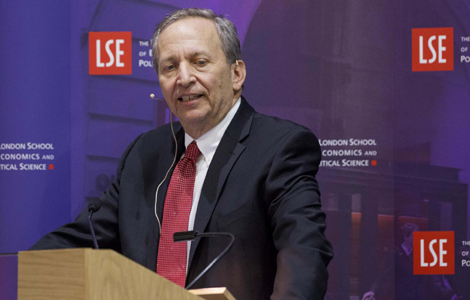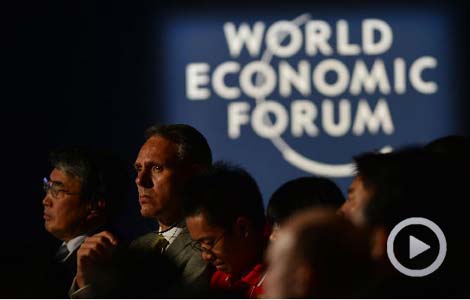Xinjiang scores on the national stage at last
Updated: 2013-09-17 08:48
By Sun Xiaochen in Shenyang and Cui Jia in Urumqi (China Daily)
|
||||||||
Road to professionalism
Although senior Uygur players such as Bali and Mirehmetjan won contracts with inland clubs to play in the CSL after the 2005 National Games, the region's talent is still going to waste.
 |
|
Erjet (center) the goalkeeper of the Xinjiang Uygur autonomous region's Under-20 soccer team, wept after losing the semifinal game. Cui Meng / China Daily |
The Under-18 team was knocked out in the preliminary rounds of the Liaoning finals, held in May. That left the players without any more games this season. Some of the promising youngsters in the team became physical education teachers, while others abandoned the game to look for work in other areas, even though few of them have received a full education.
In its defense, the regional governing body emphasized the difficulty of making radical changes quickly.
"The team's performance this time will definitely help us to push the professionalization of the sport, but some other difficulties remain," said Abulahet Amulism, director of the Administrative Center of Soccer of Xinjiang.
The lack of sponsorship has also emerged as a serious issue because no local entrepreneurs have shown an interest in providing financial support for the team.
Abulahet admitted that occasionally he envies the region's basketball officials. Xinjiang's professional basketball team, The Flying Tigers, has enjoyed consistent support from the energy and real estate giant, Xinjiang Guanghui Industry Investment Group.
"We are trying hard to attract investment from various businesses, but we haven't signed any long-term deals yet. Hopefully, the breakthrough at the games this time will spark some interest," he said.
According to web portal Sohu, the limited budget meant members of the Under-18 team had to endure a 49-hour train journey back to Xinjiang from southeast Guangdong province after finishing winter training in February.
Still, the players stressed that the opportunity to continue playing is more important than prize money or good facilities.
"As players who are truly passionate about the game, money and awards are the least important things. We can handle the tough environment so long as the game is there to play," said Mustapa, the captain of the Under-20 team.
Perhaps more seriously, security issues have also been cited by the local authorities as posing a further challenge to the development of professional clubs.
Li Xiaoxia, director of the Institute of Sociology at Xinjiang Academy of Social Sciences, said religious extremism is sometimes spread among the local people during weddings and funerals, and even at soccer games.
In the summer of 2011, two international friendly tournaments were called off by the Xinjiang local government, which cited security concerns after a number of attacks in Hotan, a city in southern Xinjiang, and in Kashgar.
"When they host mass gatherings, such as a sold-out soccer game, the organizers are under immense pressure to maintain security because of the high risk of terrorist attacks," said Abulahet.

 Thirteen dead in US Navy Yard shooting
Thirteen dead in US Navy Yard shooting
 Exporters to face more trade friction
Exporters to face more trade friction
 Toddler-death defendant says he meant no harm
Toddler-death defendant says he meant no harm
 Watchdog bites with no favor
Watchdog bites with no favor
 Miss New York crowned 2014 Miss America
Miss New York crowned 2014 Miss America
 Summers withdraws from Fed chair contest
Summers withdraws from Fed chair contest
 Scientists make land arable again
Scientists make land arable again
 Stranded cruise guests flown home
Stranded cruise guests flown home
Most Viewed
Editor's Picks

|

|

|

|

|

|
Today's Top News
Exporters to face more trade friction
Thirteen dead in US Navy Yard shooting
Minimum growth rate set at 7 percent
China urges the Philippines to stop provocations
College asks freshmen to sign suicide disclaimer
Xi seeks to resume FTA talks
UN confirms nerve gas used in Syria
Tibet gears up for new climbing season
US Weekly

|

|







